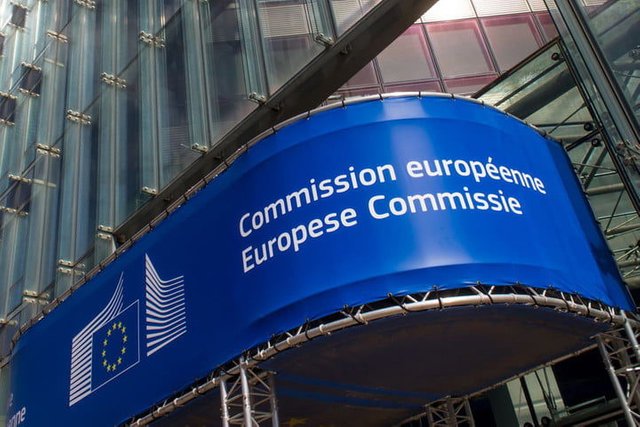
At the 2018 G20 summit that is about to end, countries have discussed their understanding and attitude towards digital currencies. The following is a summary of the attitudes of some important countries:
China: China used to be a global hub for digital currency transactions, but the government has introduced a number of regulatory measures for digital currencies, such as its banning of digital asset exchanges and ICOs, prohibition of online access to overseas trading platforms and cutting off the power of bitcoin miners. In Hong Kong, regulators have adopted a more relaxed strategy, but it prohibits trading platforms from trading digital currencies like securities without official permission.
Japan: In Japan, the Governor of the Central Bank, Kuroda, said that for the digital currency, it needs to take into account consumer protection. Digital currencies need some supervision, but at the same time, they need to avoid hindering innovation. Digital currencies can become an advantage of the financial system.
South Korea: South Korea was a hotbed of digital currency activities last year, but it is gradually tightening control this year. At the hearing of the National Planning and Finance Committee, South Korea’s Central Bank Governor Lee Chu Lie said that the most important thing is to find ways to protect consumers and prevent illegal activities related to digital currencies.
India: India’s view on digital currency enthusiasm is relatively weak. The government stated that it does not consider the digital currency a legal currency and will take measures to curb its use.
Singapore: Singapore deputy prime minister called the digital currency an “experiment” and added that the strong prohibition on trading has not yet occurred.
United States: In the United States, according to a February report from the United States’ two largest regulatory agencies in the Congress, most digital currency transactions took place in the legal grey zone. The Securities and Exchange Commission has been reviewing the transition from ICOs to digital currency funds to exchanges. All things, how to plan how to regulate this industry remains to be seen.
Canada: Canada, regulators have stated that ICOs may be regarded as securities and products related to digital currencies should be regarded as high risk. At the same time, the country’s stock exchange has become a popular area for digital currency-related stocks and funds.

As for the European Commission, it is still reviewing the regulatory framework for digital currencies. The European Securities and Market Authority, which is responsible for harmonizing the standards of member states, has provided retail investors with restrictions on digital currency-related derivatives and is also evaluating how the new EU MiFID II rules apply to digital assets. There is already a provision: platforms that exchange digital currencies in traditional currencies will soon have to verify the identity of their customers.
8Germany: Germany has cracked down on exchanges without a brokerage service permit.
9France: In a report released in early March, the French central bank proposed to ban the participation of insurance companies, banks and trust companies in the deposits and loans of digital assets. It also advocated the prohibition of selling “digital assets” savings products to the public, claiming that digital currencies are not money. And emphasize that they are not fiat currencies. French Finance Minister Lemer said that in the G20 final statement, he will fully recognize the importance of defining digital currencies, which are more asset-like in nature than nature, or they will be taxed.
10Britain: Britain, the parliamentary committee is studying how to monitor digital currencies.
11Russia: Russian media Gazeta quoted the Russian News Agency news, Russian Deputy Finance Minister Alexei Moiseev said that the Russian Central Bank and the Ministry of Finance on the issue of digital currency trading agreement. He said that the final decision will be made by the Central Bank. Before the Russian Ministry of Finance stated that their attitude may be the opposite of the central bank.
12South Africa: South African Central Bank has stated that it will study the introduction of “appropriate policy frameworks and regulatory regimes,” market regulators in South Africa do not oversee digital currency or digital asset exchanges.
13Zimbabwe: In Zimbabwe, digital currencies are traded on exchanges and used for remittance payments, but monetary authorities have warned that they are closely related to risks such as “money laundering, terrorism support, tax evasion, and fraud”.
14 Kenya: In Kenya, Bitcoin and other digital currencies have become increasingly popular even as officials warn not to trade Bitcoin and other digital currencies.
What are your thoughts? Comment below.
Make Sure To Follow Us On
Steemit- https://steemit.com/@thecoinowl
Instagram- https://www.instagram.com/thecoinowl/
Twitter- https://twitter.com/_OvO_TheCoinOwl?lang=en
Facebook- https://www.facebook.com/TheCoinOwl/
Hi! Good and informative post! Upvoted! Follow you, have a nice day!
Downvoting a post can decrease pending rewards and make it less visible. Common reasons:
Submit
Thank You!
Downvoting a post can decrease pending rewards and make it less visible. Common reasons:
Submit